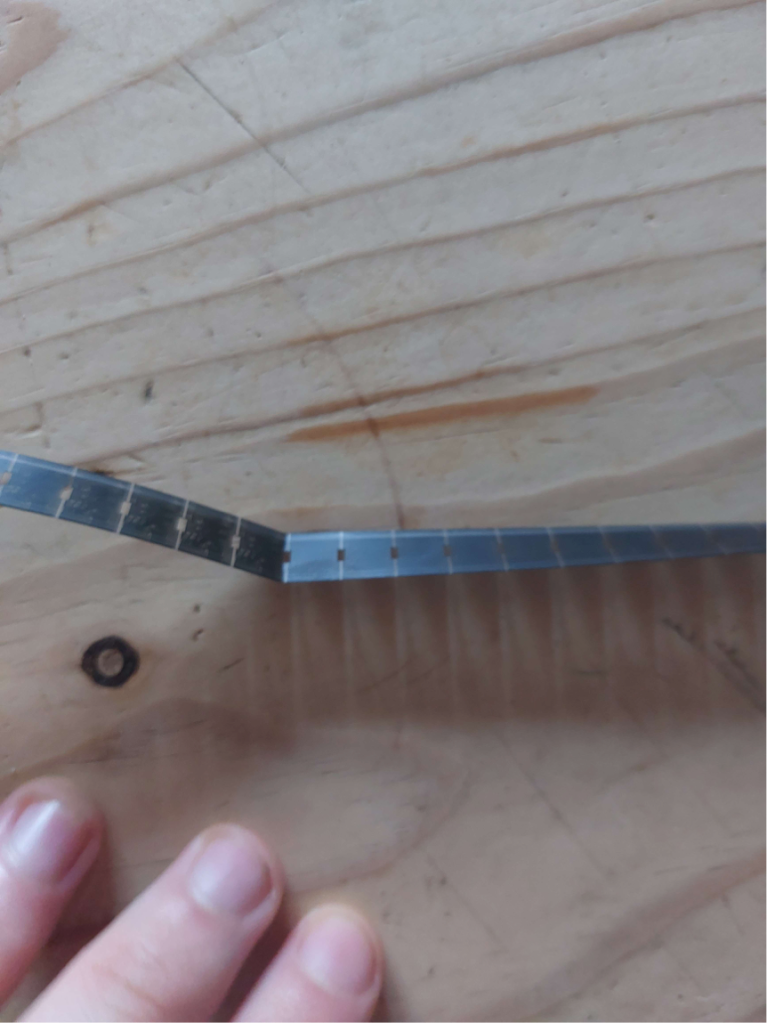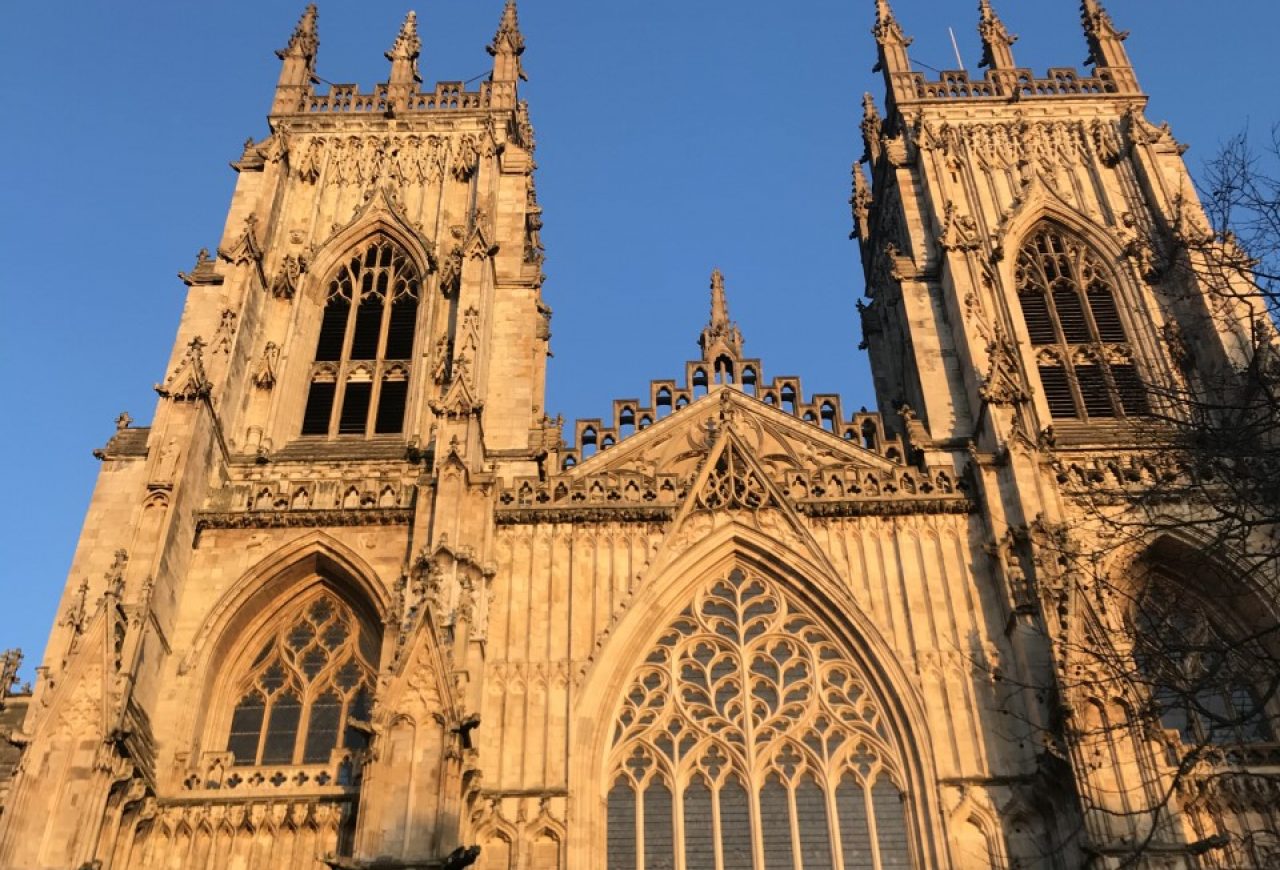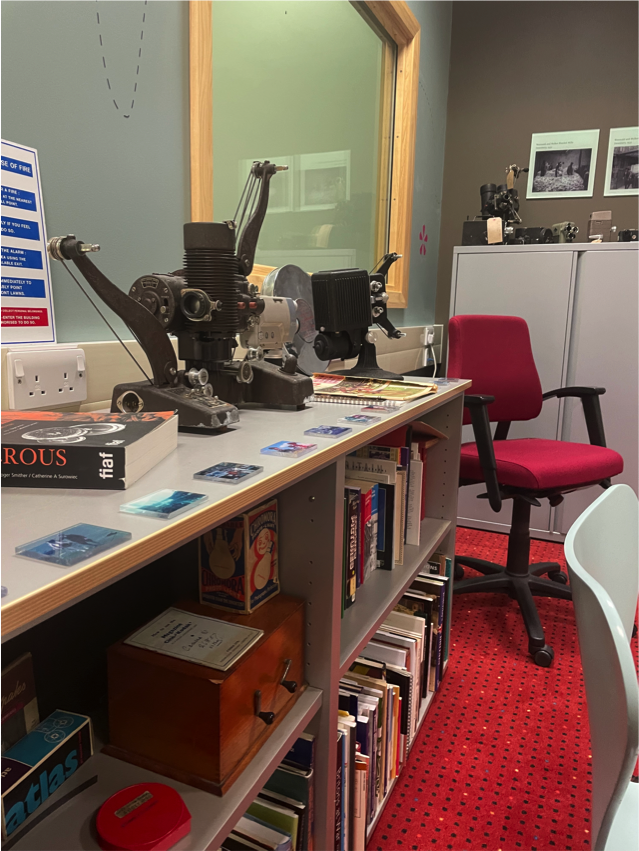Film is so evocative that researching old home movies can be emotional, as well as raise a whole array of questions, as Fae Godstchalk-Hart found on placement at the Yorkshire Film Archive. They share their thoughts here.
During my placement I worked in the Yorkshire Film Archives and I must say that though the work was not much different from what I was usually doing at university anyway, the experience was very enjoyable! They started of us newbies with a simple introductory course, which gave us a brief overview of what the archive was and also a little bit of the history of film. The experience was amazing on that day. On the day we learned how the first ever moving picture was made by a Frenchman in non other than Leeds! Unfortunately he went missing before he could patent his invention but the idea that films originated so close to home was more than fascinating. That was followed by examining the development of film through the years and I was very surprised to find that colour film had been around since the early 20th century but was of course incredibly expensive. We then looked at some old film video cameras that would have likely been used for home videos. The objects that we handled there are a long way from what you would be used to today! The thought of carrying one around for more than a couple minutes alone made my arm ache. They were incredibly heavy.
The fun with the physical media didn’t stop there. We then went on to working and editing some pieces of real film reel, which really gave another meaning to the term ‘cut’. The process consisted of physically taking the film and slicing it apart with a special device and then re-taping it together with special tape. The old movie makers, and any poor editor working under Tarantino (who still uses reels of film and old cameras), must have been agonisingly time consuming which really makes you think about how far we have come as a society now. Now you can do all the film editing you want even from your phone, with just a few simple button presses.

The rest of the placement, and the actual work, consisted taking various films from the archives that had not yet been given a historic context and giving them an historic context. Most of these were of various home videos but some of the underlying topics of the videos were not only heart-warming but fascinating. My favourite two of the five I wrote contexts for were one about a man using gardening as a form of therapy after being disabled and another about fox hunting. The one about disability, labelled disability and the garden, led me down some thought-provoking research into the effects that disability can have on someone’s life, not just in physical difficulty but in mental difficulty as well. I naturally dived deeper and deeper into the topic and found that gardening is a proven form of therapy that has psychological research proving that it works in alleviating mental troubles. It has been commonly used to treat many forms of mental illness, such as depression and anxiety, and there are even charities that will help the disabled remodel their gardens so they can more easily participate. The second about fox hunting was more interesting than it was heart-warming. Foxes used to have a much lower population and the hunt for them was considered a working class form of sport. However, after the hunt was picked up by members of the upper class due to the chase being so long and thrilling, active breeding programs were put in place in order to up the fox population. In addition to this the very landscape was changed to better accommodate them just so they could be hunted. This raises a few questions about the ethics around fox hunting in the modern day most certainly, as their population problem is a direct cause of hunting! Yet hunting is often seen as the solution to the problem in many rural areas. It also raises questions about how class activities change from the rich to the poor depending on the circumstances and the timing. What else could have been affected by this sort of shift?









 The vaults, where these films are stored, was one of my favourite parts of the place. The storage of these films is an impressive sight, especially when considering the deceptive size of the location (I didn’t even know the archive existed until my interview, despite walking past it multiple times). It also requires a lot of precision to make sure these films stay in pristine condition; humidity and temperature all have to be accounted for.
The vaults, where these films are stored, was one of my favourite parts of the place. The storage of these films is an impressive sight, especially when considering the deceptive size of the location (I didn’t even know the archive existed until my interview, despite walking past it multiple times). It also requires a lot of precision to make sure these films stay in pristine condition; humidity and temperature all have to be accounted for.

 As the placement continued, I watched all of the videos featured in the Born a Rebel film using the Yorkshire Film Archive database. The videos provided a fascinating window into the past and some of them, especially one featuring a 1960s beauty pageant that objectified and degraded women, shocked me. We were given the opportunity to write about and give our opinions on the videos and the women featured in them. I picked two videos that I was especially interested by and wrote about how the women came across in those. The videos I picked were an amateur film of women on Kings Road, Chelsea in London in 1967 which showed a range of different women going about their daily life, and a student-made documentary about female Roxy Music fans in 1977. I wrote about how the women in those films had used fashion and their appearance as a way to express themselves in a unique way.
As the placement continued, I watched all of the videos featured in the Born a Rebel film using the Yorkshire Film Archive database. The videos provided a fascinating window into the past and some of them, especially one featuring a 1960s beauty pageant that objectified and degraded women, shocked me. We were given the opportunity to write about and give our opinions on the videos and the women featured in them. I picked two videos that I was especially interested by and wrote about how the women came across in those. The videos I picked were an amateur film of women on Kings Road, Chelsea in London in 1967 which showed a range of different women going about their daily life, and a student-made documentary about female Roxy Music fans in 1977. I wrote about how the women in those films had used fashion and their appearance as a way to express themselves in a unique way.
 The facilities at the archive were also very interesting to examine. Because they deal with a variety of different formats such 16mm film, 35mm film, or even VHS, the Archive need to have equipment to test all these formats on. The images in this article show two different methods of viewing these images. One is a simple VHS player which were used in more recent history, and the other image showing methods of playing film, which were a lot less common and a lot harder to find now. Although the films they receive will be digitised, it is important for the archive to check them first, and ensure that they aren’t damaged and that the content is important enough to be digitised.
The facilities at the archive were also very interesting to examine. Because they deal with a variety of different formats such 16mm film, 35mm film, or even VHS, the Archive need to have equipment to test all these formats on. The images in this article show two different methods of viewing these images. One is a simple VHS player which were used in more recent history, and the other image showing methods of playing film, which were a lot less common and a lot harder to find now. Although the films they receive will be digitised, it is important for the archive to check them first, and ensure that they aren’t damaged and that the content is important enough to be digitised.